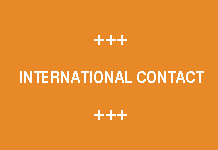Consumers’ trust is key to the adoption and success of future digital services in industries such as communications, commerce, healthcare, and administration. Erosion of privacy and crime can seriously hamper the worldwide economic growth. According to a recent Unisys Security Index survey, identity theft and bank cards fraud are the top two concerns in a consumer’s digital life. These trust issues even surpass other fears outside the digital life such as national security and epidemics.
This joint initiative aims to help consumers overcome the fear of identity fraud and data breaches that have dampened trust in digital services. ‘Trust in Digital Life’ takes a multi-disciplinary approach – involving users, markets, legal and societal aspects, and technology – that will accelerate research and development of trustworthy technologies and products.
"It is essential to safeguard the European social ‘acquis’ in a future world where many human and business activities are critically dependent on complex technology infrastructures and digital services," says Mario Campolargo, director Emerging Technologies & Infrastructures at the European Commission. "Industry, government and users must work together to promote trust and prevent malicious intent and crime."
"There is no one simple recipe to implement trustworthiness in digital services," says Jacques Seneca Executive Vice-President of Gemalto. "We anticipate that technologists in many areas have a part to play in establishing secure credentials, identity management, secure data storage, data life cycle management, user interfaces, connected appliances, client software and Web services. Together with public administrations and all stakeholders, we can make great strides toward Trust in Digital Life."
"As a health and well-being company Philips is bringing more health and wellbeing services to the home, for example via its home healthcare monitoring services and its new Net-TV platform. Trust is a key element when providing these Internet based services. Consumers want to be assured that their sensitive information is handled with the greatest care", says Willem Jonker Vice President of Philips Research.
The partners recognize that trustworthiness is essential for a free and open information society. Kim Cameron of Microsoft says: "We are eager to work with our partners in Europe to build trustworthy solutions that work together, supporting European values through elements like security, privacy, transparency, and accountability."
"Nokia believes that through active and open collaboration with different parties we will achieve the trustworthiness we seek. Trust cannot be defined by a single party," says Erkki Ormala, Vice President, Technology & Trade Policy, of Nokia.





